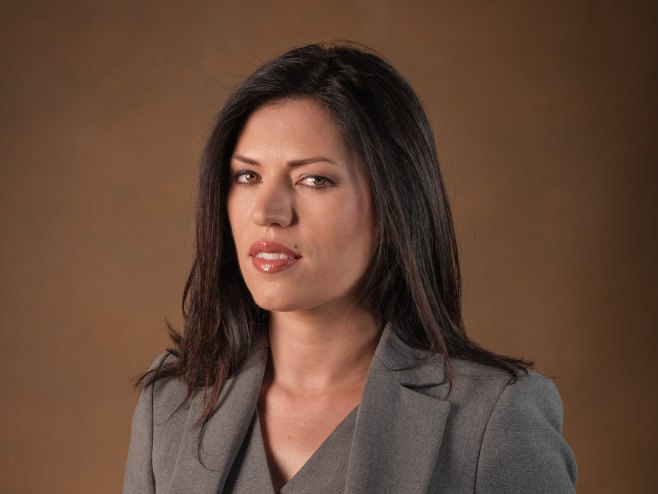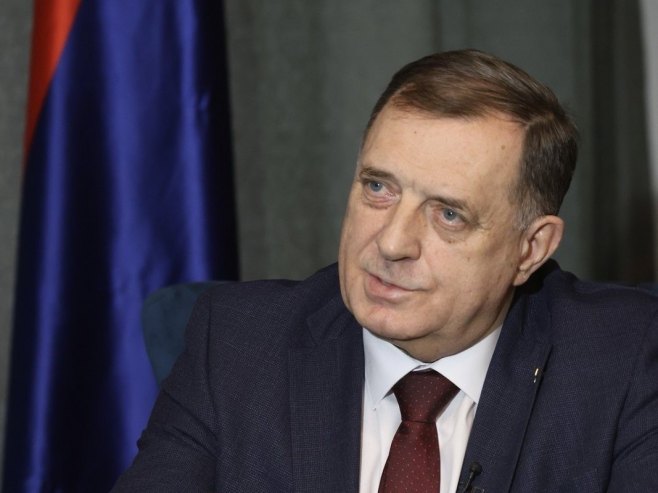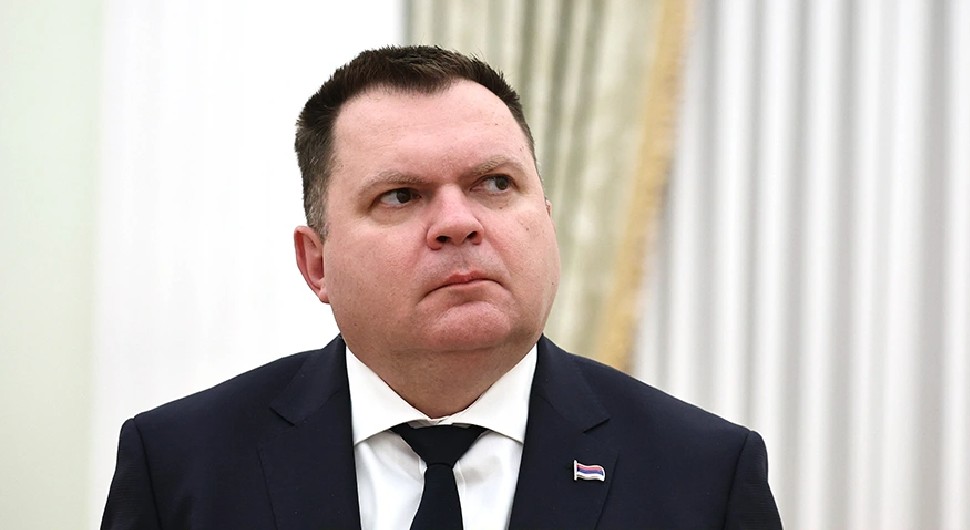The Ambassador of Bosnia and Herzegovina to Serbia, Aleksandar Vranješ, emphasized that numerous international reports, analyses, and comments have marked Bosnia and Herzegovina as a dangerous source of terrorism in Europe. However, none of them shocked the Sarajevo elite as much as the address by the Serbian Ambassador to Bosnia and Herzegovina at the UN in Geneva, Bojan Vujić, in March this year during the 55th regular session of the UN Human Rights Council.
In an op-ed for Belgrade’s “Politika,” Ambassador Vranješ recalled that in November 2019, French President Emmanuel Macron stated in an interview with London’s “The Economist” that Bosnia and Herzegovina is a “ticking time bomb next to Croatia, facing the problem of returning jihadists.”
- The assessment that Bosnia and Herzegovina is a source of terrorism could be heard in France even earlier, as evidenced by a report on the state television France 24 in 2015, which stated that “Bosnia once imported jihadists, and today it exports them,” referring to the large number of Bosnian citizens in the ranks of “Islamic State” in Syria – Vranješ said.
He added that similar assessments could also be heard in Italy. “Last year, Italian media published intelligence information that twenty terrorist cells are active in the Balkans, including Bosnia and Herzegovina. Back in 2017, Matteo Salvini, then a Member of the European Parliament and now the Deputy Prime Minister of Italy under Giorgia Meloni, stated during a debate in the European Parliament that almost every terrorist attack in Europe in recent years had connections to Bosnia and Herzegovina,” emphasized Ambassador Vranješ.
On that occasion, Vranješ added, Salvini also noted that Bosnia and Herzegovina is the leading European supplier of jihadists and possesses complete infrastructure for recruiting, training, supplying, and dispatching Islamist extremists throughout Europe.
- The German Spiegel wrote in 2016 that radical Islamists found refuge in Bosnia and Herzegovina, where they recruit fighters, promote jihad, and preach a fundamentalist interpretation of Islam right next to the European Union border. This was confirmed last year in a Europol report, which stated that the return of foreign terrorist fighters from Syria and Iraq remains a significant security challenge in the Western Balkans, with Bosnia and Herzegovina at particular risk due to the large number of these fighters originating from this country – Vranješ noted.
He pointed out that the U.S. State Department advises its citizens traveling to Bosnia and Herzegovina to exercise increased caution due to potential terrorism because “terrorist groups continue to plan possible attacks in Bosnia and Herzegovina.”
According to him, a similar advisory is issued by the British Foreign Office, which reminds its citizens that “terrorist attacks in Bosnia and Herzegovina cannot be ruled out,” while Israel has raised the level of travel warning to Bosnia and Herzegovina to the third level out of four, warning to avoid unnecessary travel due to the presence of terrorist cells motivated to harm Jews.
- Ambassador Vujić’s speech was based precisely on the mentioned international reports and analyses that highlight a significant source of terrorist threats in Bosnia and Herzegovina and the connections of Bosnian political circles with radical Islamists worldwide. At the end of his speech, colleague Vujić concludes that the only way to fight radical Islamist elements in Bosnia and Herzegovina is strong international support for the constitutional system established in Dayton, including its decentralized structure and provisions that ensure the participation of Serbs and Croats in all political processes in Bosnia and Herzegovina. This way, Vujić emphasizes, not only is Bosnia and Herzegovina secured, but also the security of Europe and the world – Vranješ stated.
Of course, he added, all that Ambassador Vujić presented is well known to the international community and political Sarajevo.
- However, the fact that a Serbian ambassador dared to draw attention to the dangers of terrorism in Bosnia and Herzegovina at such an important forum united the Bosniak political and media scene in an attempt to punish colleague Vujić at any cost – Vranješ emphasized.
He recalled that the Federal Police Administration (FUP) from Sarajevo sent an official note to the Prosecutor’s Office of Bosnia and Herzegovina requesting consent to investigate Ambassador Vujić about his claims that Bosnia and Herzegovina is the most dangerous source of terrorism in Europe.
- The Prosecutor’s Office promptly responded and ordered FUP to question Vujić, because allegedly the Federal Ministry of the Interior does not have information that could confirm Vujić’s claims. Of course, this entire “setup” does not aim to prevent terrorism or strengthen anti-terrorist measures on the territory of the Federation of Bosnia and Herzegovina, but rather to frame Ambassador Vujić with the criminal offense of inciting national, racial, and religious hatred, discord, and intolerance, which carries a minimum sentence of three years in prison – Ambassador Vranješ pointed out.
He questioned the strictness and rapid “setup” of colleague Vujić and emphasized that the answer is, of course, political.
- Namely, the Bosniak policy of victimization is one of the two “cornerstones” on which the Bosniak foreign policy strategy rests. Sixteen years ago, the former president of the SDA and the late Sulejman Tihić stated that Bosniaks must overcome the “passive victim position,” that is, they should abandon the policy of “victimization” and self-pity and turn towards the future, accepting compromise with Serbs and Croats – Vranješ emphasized.
He added that Tihić’s hand of reconciliation did not find understanding in the Bosniak deep state; on the contrary, nearly three decades after the end of the war, the international presentation of Bosniaks as victims of genocide of the long-concluded war continues, which has become the most important Bosniak foreign policy artifact.
- When we add to this the second “cornerstone” – the untruthful claim that Bosniaks today make up more than 51% of the population of Bosnia and Herzegovina, we get a foreign policy strategy on which the international community should grant greater political rights to Bosniaks, the reorganization of Bosnia and Herzegovina towards a national state of Bosniaks, then the “cementing” of the historical narrative that no one dares to question, the abolition of the Republic of Srpska, and the integration of Serbs and Croats into minority status, all under the leadership of the “friendly” collective West led by the USA. On the other hand, raising awareness of terrorism as a real threat to Bosnia and Herzegovina, the region, Europe, and the rest of the world is, in fact, a “counterattack” to this foreign policy strategy, precisely at the moment when a resolution on Srebrenica is being prepared at the UN as the pinnacle of Bosniak victimization policy – Vranješ explained.
Therefore, Ambassador Vranješ pointed out, Ambassador Vujić’s address was so painful because it was a serious slap to such unilateral actions directed against the Serbian people and the Republic of Srpska.
- Unfortunately for them, the entire plan against colleague Vujić will ultimately fail. The Presidency of Bosnia and Herzegovina does not have a mechanism to dismiss him, FUP is not competent for citizens of the Republic of Srpska, the Prosecutor’s Office cannot prove a criminal offense based on reading international reports on terrorism in Bosnia and Herzegovina, and the Court of Bosnia and Herzegovina cannot prosecute him because warning about the dangers of terrorism based on evidence is not spreading national, racial, and religious hatred – Vranješ emphasized.
In the end, he concluded, Sarajevo’s media will have to admit that by dismissing the lawsuit, the Court of Bosnia and Herzegovina confirmed that Ambassador Bojan Vujić was right and that there is a real danger of terrorism in Bosnia and Herzegovina.
- This is a fact on which the entire Bosniak foreign policy strategy collapses – concluded the Ambassador of Bosnia and Herzegovina to Serbia in an op-ed for “Politika.”
Source: RTRS








